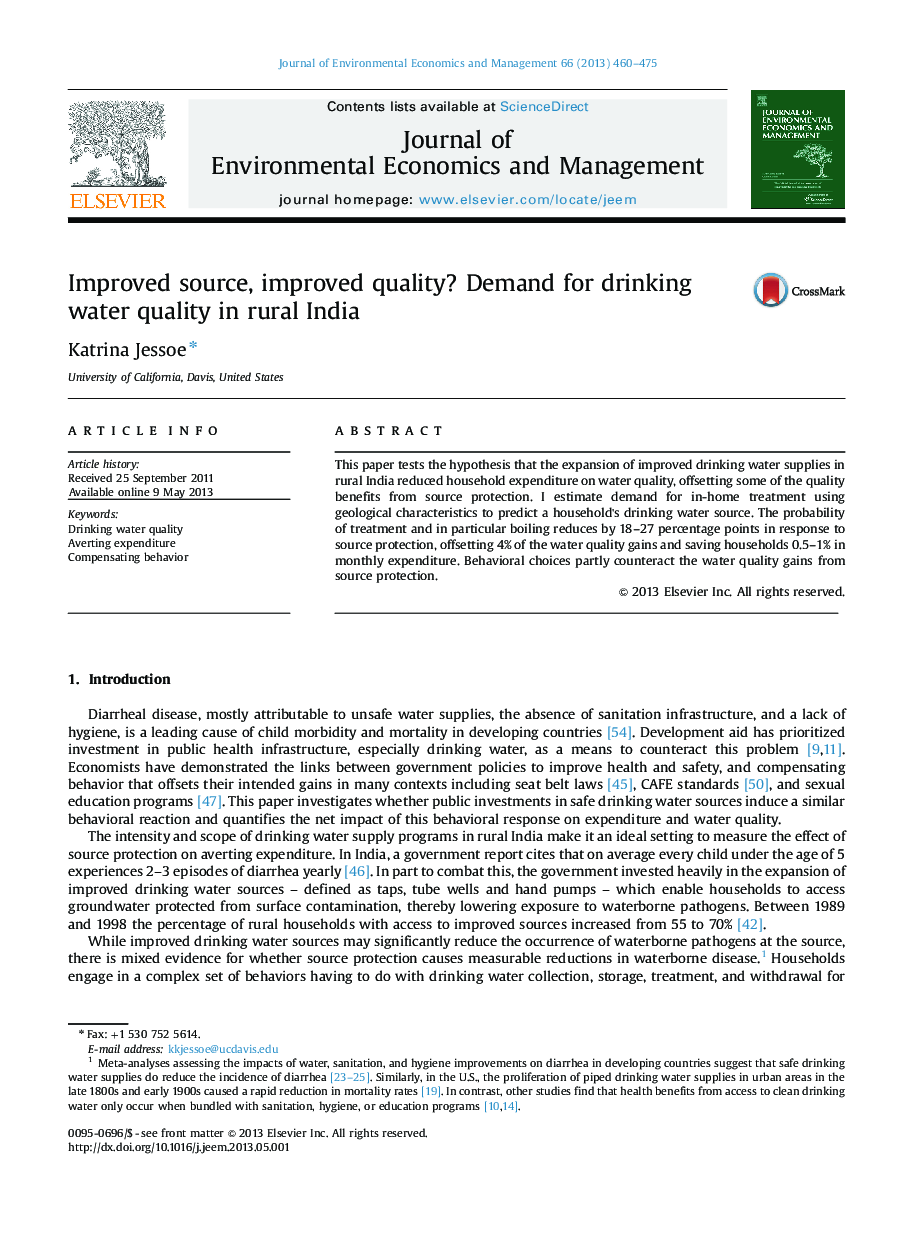| Article ID | Journal | Published Year | Pages | File Type |
|---|---|---|---|---|
| 958925 | Journal of Environmental Economics and Management | 2013 | 16 Pages |
Abstract
This paper tests the hypothesis that the expansion of improved drinking water supplies in rural India reduced household expenditure on water quality, offsetting some of the quality benefits from source protection. I estimate demand for in-home treatment using geological characteristics to predict a household's drinking water source. The probability of treatment and in particular boiling reduces by 18–27 percentage points in response to source protection, offsetting 4% of the water quality gains and saving households 0.5–1% in monthly expenditure. Behavioral choices partly counteract the water quality gains from source protection.
Keywords
Related Topics
Social Sciences and Humanities
Economics, Econometrics and Finance
Economics and Econometrics
Authors
Katrina Jessoe,
